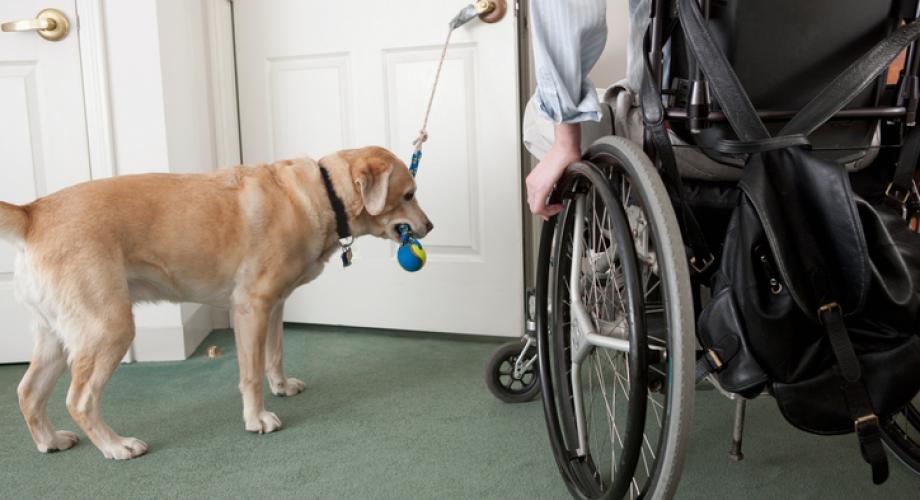A lack of clarity in the federal law governing reasonable accommodation requests for assistance animals (covering both service animals and emotional support animals) creates a loophole for bad actors to abuse the system. The most common cases of misuse involve requests for an emotional support animal, where the resident obtains documentation on demand from online providers. These providers often do not have a bona fide professional relationship with the individual.
According to the New Yorker, no government agency keeps track of the number of reasonable accommodation requests for animals. The National Service Animal Registry (NSAR), a private commercial enterprise that sells certificates, vests and badges for helper animals, signed up 2,400 animals in 2011. In 2013, it registered 11,000. As of March 20, 2018, NSAR has registered 182,030 service and emotional support animals. To put this figure into perspective, NAA is aware of more than 20 websites or online providers, including NSAR, that offer documentation to their customers in exchange for a fee.
Some residents use the law to avoid paying pet rent or fees, or to circumvent breed restrictions or no-pet policies, and with the required documentation so readily available on the internet, owners and operators are seeing a significant increase in requests. These practices undermine the intent of the Fair Housing Act to help disabled persons who truly need an emotional support animal, and it also imposes an unfair burden on property owners and managers.
While policymakers continue to work on a federal solution, owners and operators are beginning to see action at the state level.
On March 9, South Dakota Governor Dennis Daugaard signed Senate Bill 119 into law. Where current federal law allows for an apartment owner to request supporting documentation, South Dakota’s law requires that the verification “originate from a licensed health care provider who does not operate in this state solely to provide certification for service or assistance animals.” The law also allows an apartment owner to evict a resident if the person is found to have knowingly made a false claim of having a disability that requires the use of a service animal or assistance animal or of knowingly providing fraudulent supporting documentation in connection with such a claim.
South Dakota is now one of 21 states that have laws on the books making it unlawful to misrepresent an animal as a service animal or fraudulently represent oneself as having a right to be accompanied by a service animal (The others are California, Colorado, Florida, Idaho, Kansas, Maine, Michigan, Missouri, Nebraska, Nevada, New Hampshire, New Jersey, New Mexico, New York, North Carolina, North Dakota, Texas, Utah, Virginia, and Washington). Some of these laws are applicable to the broader category of assistance animals, which would include emotional support animals (Colorado, Idaho, Kansas, Maine, North Dakota, South Dakota, Virginia).
In addition to the above, at least 14 states are in various stages of drafting legislation on this issue in 2018 (Alabama, Arkansas, Connecticut, Hawaii, Illinois, Indiana, Iowa, Kentucky, Michigan, Oklahoma, Pennsylvania, South Carolina, Washington and Wisconsin). An additional five states considered legislation in 2017.
For affiliates interested in pursuing legislation, two states’ perspectives are worth noting.
In March, Indiana Senate Bill 240 was approved by both houses of the General Assembly and is currently awaiting the governor’s signature. Similar to North and South Dakota, SB 240 places limitations on the types of providers allowed to provide documentation for a resident. SB 240 states that the verification must come from “health service providers” who are licensed in the state. The term includes a psychiatrist, physician, psychologist or advanced practice nurse, or individuals licensed by the Behavioral Health and Human Services Licensing Board, such as a therapist, mental health counselor or social worker.
The list of allowable providers excludes “providers whose sole service to the individual is to provide a verification letter for a fee.” The legislation also addresses the requirements for a resident who moves from another state (to address when proof from an out-of-state provider is allowable). In addition to these provisions, the legislation also prescribes criminal penalties for individuals who misrepresent a need for an animal or for health service providers who verify the need for an animal under false pretenses.
NAA affiliates also should consider Virginia’s comprehensive approach. Virginia’s law clarifies the resident’s rights and owner’s rights regarding reasonable accommodation requests for assistance animals (mirroring requirements of the federal Fair Housing Act). Most important, the law requires that the person who provides third-party verification for the resident’s reasonable accommodation request must have a therapeutic relationship with that individual, placing the responsibility on the resident to provide more reliable documentation for the animal.
For more information on this issue or other fair housing issues, contact Nicole Upano, Senior Manager, Government Affairs on the NAA staff.
